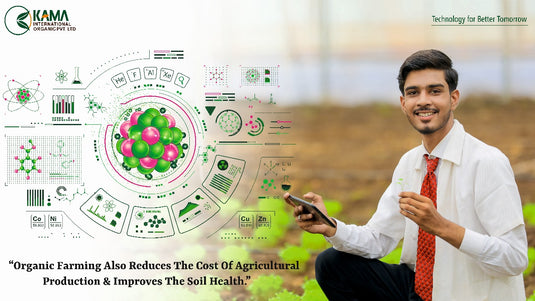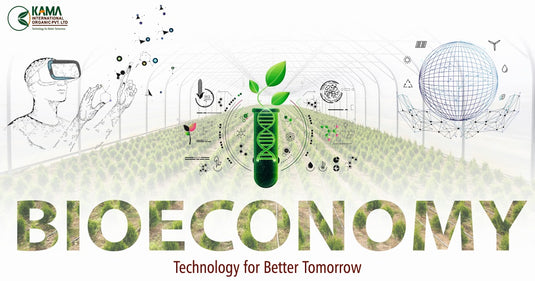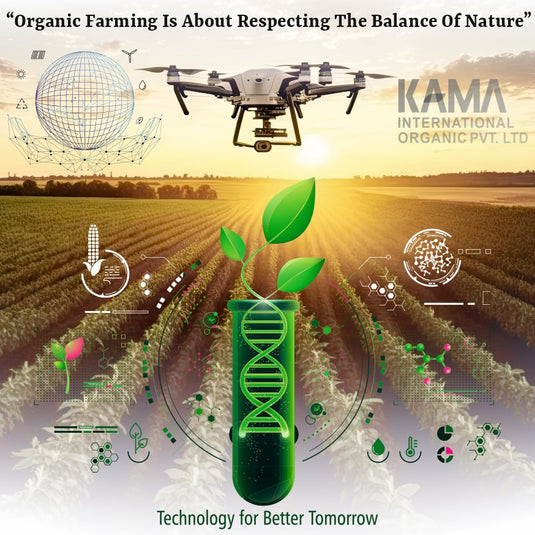In recent years, as global awareness of environmental sustainability and health concerns has escalated, organic farming has emerged as a beacon of hope for the future of agriculture. With its emphasis on natural methods, soil health, and biodiversity, organic farming offers a promising path toward feeding the world's growing population while preserving our planet for future generations. In this blog, we'll explore the potential of organic farming and its role in shaping the future of agriculture worldwide.
The Rise of Organic Farming:
Organic farming is not a new concept. It draws inspiration from traditional agricultural practices that have been around for centuries. However, it gained momentum in the late 20th century as a response to concerns about the environmental and health impacts of conventional farming methods, such as heavy pesticide and fertilizer use.
Today, organic farming is more than just a niche market. It has become a significant sector of the global food system, with organic products increasingly in demand by consumers who prioritize health, sustainability, and ethical production practices. According to the Research Institute of Organic Agriculture (FiBL), the global organic food market has experienced steady growth in recent years, reaching $105 billion in 2019.
Advantages of Organic Farming:
1. Environmental Sustainability: Organic farming relies on natural processes to maintain soil fertility and control pests and diseases. By avoiding synthetic chemicals and promoting practices like crop rotation, cover cropping, and composting, organic farms help preserve biodiversity, protect water quality, and reduce greenhouse gas emissions.
2. Health Benefits: Organic farming prohibits the use of synthetic pesticides, herbicides, and genetically modified organisms (GMOs), resulting in food that is free from harmful residues. Studies have shown that organic produce tends to have higher levels of beneficial nutrients, antioxidants, and lower levels of pesticide residues compared to conventionally grown counterparts.
3. Soil Health: Organic farming prioritizes soil health as the foundation of agricultural sustainability. Practices such as crop rotation, cover cropping, and the use of organic amendments improve soil structure, fertility, and microbial diversity, leading to higher yields and resilience to drought and other climate-related stresses.
4. Animal Welfare: Organic farming standards include strict requirements for the welfare of animals raised for meat, dairy, and eggs. Livestock on organic farms are given access to pasture and are raised in conditions that promote natural behaviors, reducing stress and improving overall well-being.
Challenges and Opportunities:
While organic farming offers numerous benefits, it also faces challenges that must be addressed to realize its full potential:
1. Transition Period: Converting conventional farms to organic practices requires a transition period during which yields may temporarily decrease as the soil adjusts to new management practices. Financial support and technical assistance are needed to help farmers make this transition successfully.
2. Market Access: Access to markets and fair prices for organic products can be challenging for small-scale farmers, especially in developing countries. Strengthening organic certification systems, improving infrastructure, and investing in market development initiatives can help overcome these barriers.
3. Research and Innovation: Continued investment in research and innovation is essential to address knowledge gaps, develop new organic farming techniques, and improve productivity, resilience, and resource efficiency.
The Global Impact:
The future of organic farming is inherently linked to the future of food and agriculture worldwide. As the world's population continues to grow, and environmental challenges such as climate change, soil degradation, and water scarcity intensify, organic farming offers a sustainable and resilient alternative to conventional agriculture.
In developing countries, where smallholder farmers are disproportionately affected by poverty, food insecurity, and climate change, organic farming can play a vital role
in improving livelihoods, enhancing food security, and building resilience to environmental shocks. By empowering farmers with knowledge and resources to adopt organic practices, we can create more sustainable and equitable food systems that benefit both people and the planet.
Furthermore, consumer demand for organic products is expected to continue rising as more people become aware of the environmental and health benefits of organic farming. This presents a significant opportunity for farmers, especially those in developing countries, to tap into lucrative markets and improve their incomes while contributing to sustainable development goals.
Governments, international organizations, and civil society have a crucial role to play in supporting the growth of organic farming globally. This includes providing financial incentives, technical assistance, and capacity-building programs for farmers, investing in research and innovation, promoting organic certification and labeling schemes, and fostering market development initiatives.
In conclusion, organic farming holds great promise for the future of agriculture worldwide. By embracing natural methods, prioritizing soil health and biodiversity, and promoting environmental sustainability and social equity, organic farming can help address some of the most pressing challenges facing our food and agricultural systems. As we look ahead, it's essential to continue investing in organic farming and working collaboratively to build a more resilient, equitable, and sustainable food future for generations to come.




